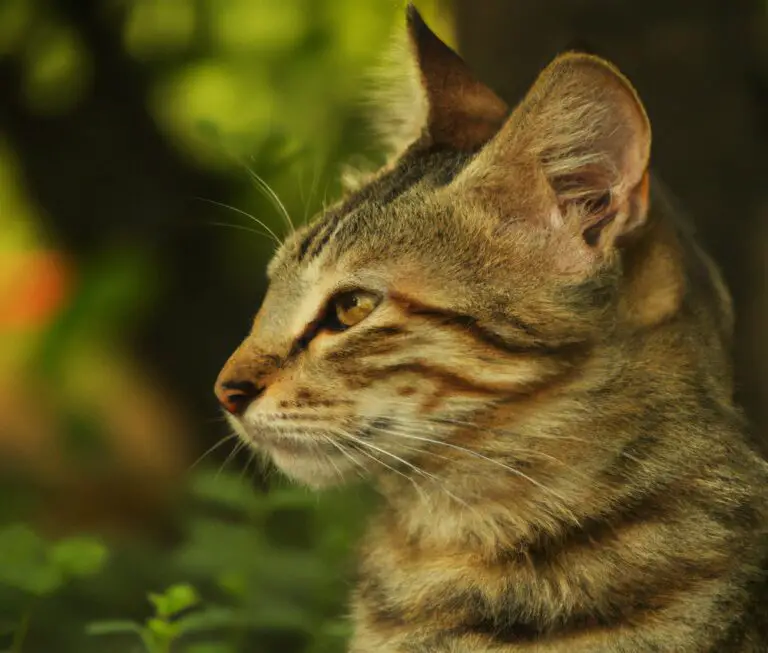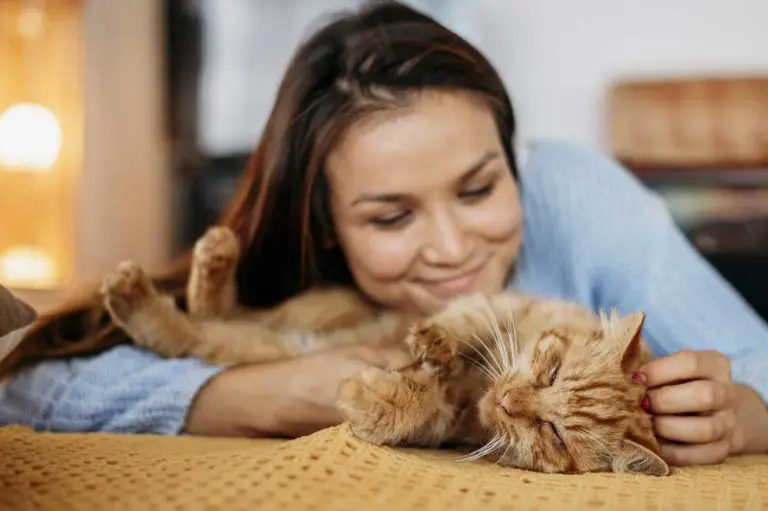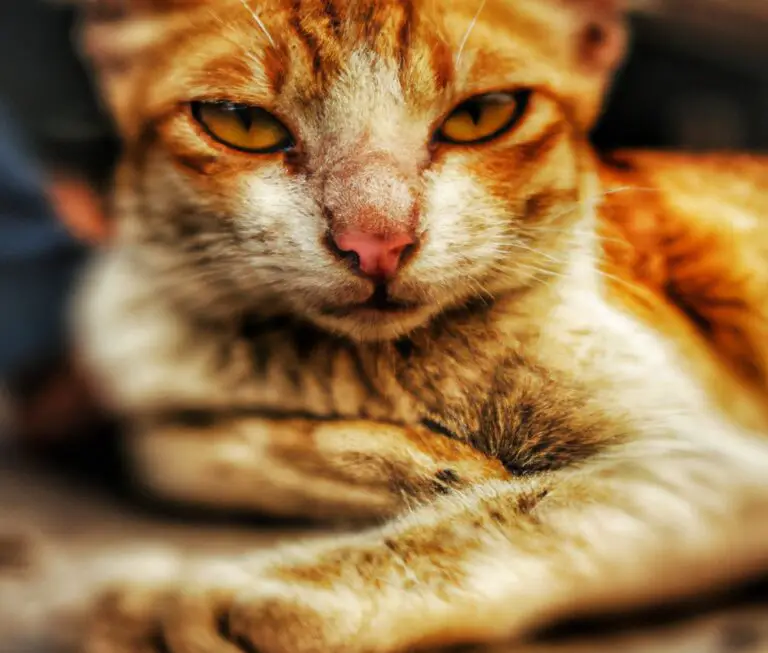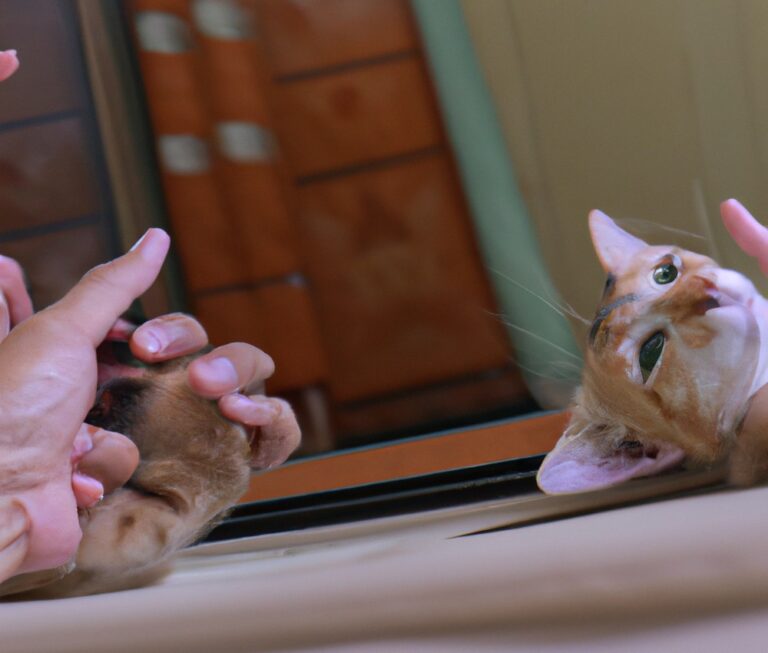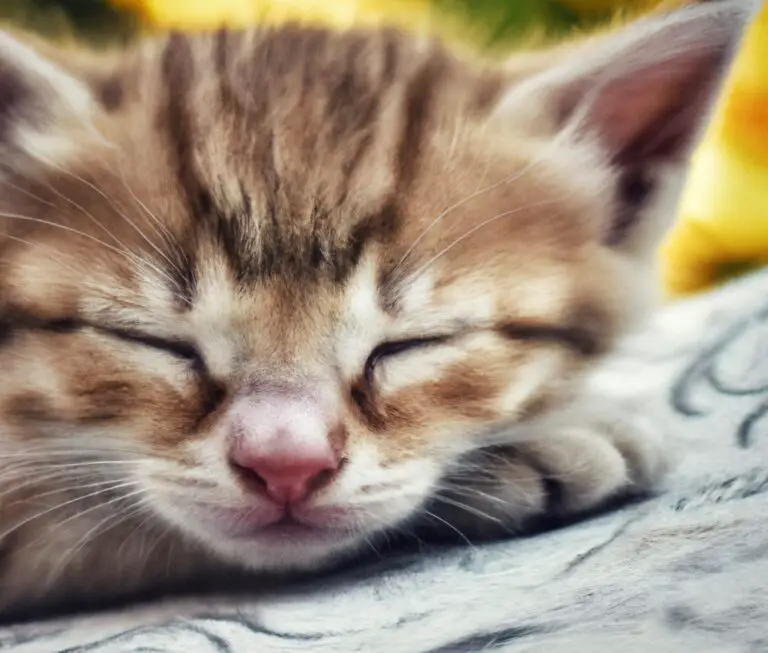Caring For A Cat With Special Needs
Caring for a cat with special needs requires patience, understanding, and extra attention. You’ll need to provide extra food, water, and medical care as needed. It also helps to create a comfortable, stress-free environment for your cat.
Caring for a cat with special needs can be a rewarding and fulfilling experience. I know this firsthand, as I recently welcomed a special needs cat into my home. I’d heard of special needs cats before, but I wasn’t sure exactly what that meant. I quickly learned that special needs cats can come with a variety of different needs, and caring for them requires a lot of knowledge and patience.
In this blog, I’ll be sharing my personal experience with caring for a special needs cat. I’ll be talking about what is considered a special need for cats, what the signs of a cat having special needs are, and how you can make sure you’re providing the best care for them. I’ll also be offering tips for making the transition to caring for a cat with special needs easier, and discussing budgeting for a cat with special needs.
If you’re considering bringing a special needs cat into your home, this blog is for you. I’ll be sharing everything I’ve learned from my experience, and I hope it helps to make your transition to caring for a special needs cat a little bit easier.
What is considered a special need for cats?
Caring for a cat with special needs can be both a rewarding and challenging experience. But what exactly is considered a special need for cats? A special need can include anything from physical disabilities, mental or behavioral issues, to medical conditions that require regular medication and ongoing care.
Physical disabilities can range from a missing limb, to vision or hearing impairments. Cats with physical disabilities will need extra care and adjustments so they can live as comfortably and independently as possible. For example, a cat with a missing limb may need an extra ramp or two to help them reach their favorite spots.
Mental and behavioral issues can include anything from separation anxiety and stress, to fear and aggression. Cats with these issues may need extra love, patience and understanding in order to help them cope. They may also need to see a vet or a certified animal behaviorist to help manage their symptoms.
Medical conditions requiring regular medication and ongoing care can include diabetes, kidney disease, and hyperthyroidism. Cats with these conditions need to be monitored regularly by a vet, and may need to be given specific diets to help manage their symptoms.
No matter what kind of special need your cat may have, it’s important to provide them with extra love and care to ensure they have a happy and healthy life.
What are some tips for making the transition to caring for a cat with special needs easier?
Caring for a cat with special needs can be a rewarding experience, but it also comes with some challenges. Here are some tips to make the transition easier:
- Talk to your veterinarian: Before bringing your cat home, talk to your veterinarian about the cat’s needs and any special precautions you should take.
- Make sure your home is set up for your cat: Make sure the space you have for your cat is spacious and comfortable. Consider adding a ramp or extra perches to help your cat move around safely.
- Get to know your cat’s needs: Take time to get to know your cat’s needs and preferences. This will help you find a routine that works for both of you.
- Be patient: It may take some time for your cat to adjust to its new home, so be patient and understanding.
- Ask for help: Don’t be afraid to ask for help from your veterinarian or a pet care expert. They can provide tips and advice that can make caring for your cat easier.
What are some common special needs cats may have?
Caring for a cat with special needs can be both rewarding and challenging. Cats with special needs may require extra attention, patience, and resources. But when you understand what their specific needs are and find ways to meet them, you’ll be able to give them the best quality of life.
One of the most common special needs cats may have is deafness. While cats with hearing impairments may require extra care, they can learn to communicate with you and live a full life. They may need help getting acquainted with their environment and may take a bit more patience in the early stages.
Cats with vision impairments may also require extra care. While vision-impaired cats can learn to navigate their environment, they may need help from you in the form of familiarizing them with their surroundings. Try to keep their environment consistent, and if you ever move them, give them extra time and patience to adjust.
Some cats may have physical impairments, such as missing limbs or paralysis. Cats with these special needs may need help getting around, so you may need to provide ramps or special beds for them. Additionally, you may need to provide extra assistance with grooming and other daily activities.
Finally, some cats may have medical conditions that require regular medication or special diets. It’s important to understand the specific needs of your cat and be sure to give them the correct dose of their medications. If your cat requires a special diet, talk to your vet and follow their instructions closely.
Cats with special needs require extra care, but with the right understanding and resources, you can give them the best quality of life. To ensure your cat is happy and healthy, talk to your vet and learn as much as you can about your cat’s specific needs.
What are the signs of a cat having special needs?
If you have a cat with special needs, it is important to recognize the signs so that you can provide appropriate care. Here are five signs to look out for:
- A decrease in activity or mobility: If your cat is having trouble moving around their home, it could be a sign that they have special needs. Look out for any changes in their activity or mobility, such as difficulty jumping up onto furniture or reluctance to move around.
- Changes in diet: Cats with special needs may not eat as much as they used to. If your cat is not eating or is eating less than they used to, it could be a sign that they have special needs.
- Changes in behavior: If your cat is displaying unusual behaviors, such as aggression or anxiety, it could be a sign that they have special needs.
- Changes in grooming habits: Cats with special needs may not be able to groom themselves as well as they used to. Look for signs of hair matting or other issues with their coat.
- Changes in sleep patterns: Cats with special needs may have difficulty sleeping or may sleep more than usual. If your cat is having trouble sleeping, it could be a sign that they have special needs.
If your cat is showing any of these signs, it is important to seek the advice of a vet or other specialist who can provide the appropriate care. Caring for a cat with special needs can be challenging, but it is also very rewarding. With the right care and support, your cat can lead a happy and healthy life.
What should you do if you think your cat may have special needs?
If you think your cat may have special needs, you should start by talking to your veterinarian. It is important to have an experienced professional diagnose your cat. The vet will be able to make an accurate assessment and provide guidance on how to care for your cat.
You should also do your own research. Learning about the specific needs of cats with special requirements can help you find the best way to care for your pet. There are many resources available on the internet, as well as books and magazines that can provide helpful advice.
It may also be helpful to join a support group or forum. This can be a great way to connect with other pet owners who have similar experiences. You can exchange advice and ask questions, while also finding emotional support.
Finally, remember to be patient and loving. Cats with special needs may need extra attention and care. Spend time playing and interacting with your cat to help them feel safe and secure. A little extra love can go a long way in helping your pet adjust to their new environment.
How can you make sure your cat is comfortable and happy with special needs?
If you are the parent of a cat with special needs, you want to make sure they are comfortable and happy. Here are some tips to ensure your cat has the best quality of life possible:
First and foremost, create a safe environment for your cat. Make sure there is plenty of space for them to move around and access areas that are off-limits to other cats in the house. This will help keep them from feeling overwhelmed or stressed.
Provide plenty of enrichment activities that stimulate their senses and keep them occupied. This could include things like toys they can play with, scratching posts, and interactive puzzle games.
Make sure you are giving your cat a balanced diet that meets their special needs. Talk to your veterinarian about what type of food is best for your cat’s health.
Find a routine that works for your cat and stick to it. This will help them feel secure and know what to expect each day. Try to keep their feeding, sleeping, and exercise times consistent.
Finally, show your cat lots of love and affection. Spend time with them, pet them, and give them plenty of positive attention. This will help them feel safe and secure in their environment.
By following these tips, you can make sure your cat with special needs is comfortable and happy. With the right care and attention, you can ensure that your cat has a long and happy life.
How can you make sure you are providing the best care for a cat with special needs?
You can make sure you are providing the best care for a cat with special needs by doing the following:
- Remember to be patient. Cats with special needs need extra care and attention, and it can be difficult to provide the necessary care when you feel frustrated. Make sure to take regular breaks and remind yourself to be patient and kind.
- Stay up to date on the latest veterinary care. Make sure you are aware of any new treatments or therapies that may be available for your cat. Ask your vet for advice and recommendations.
- Take care of your cat’s physical needs. Make sure your cat is getting enough food and water and properly cared for. Clean the litter box regularly and make sure your cat is getting enough exercise.
- Make sure your cat has a comfortable environment. Cats with special needs may be more sensitive to changes in the environment, so make sure your cat has a safe and comfortable place to rest.
- Be aware of any emotional needs. Cats with special needs may be more prone to stress and anxiety, so make sure you are aware of any signs of distress or distress behavior. Provide comfort and reassurance to your cat when needed.
By following these simple steps, you can make sure you are providing the best care for a cat with special needs.
What are some things to consider when budgeting for a cat with special needs?
When budgeting for a cat with special needs, there are a few things to consider. First, it’s important to factor in the cost of regular vet visits. Regular vet visits are essential for monitoring your cat’s health, so it’s important to make sure you have the funds to cover these appointments.
Second, you’ll want to take into account any additional medical supplies your cat may need, such as prescription medications, special food, and medical equipment. It’s also a good idea to create a savings account specifically for your cat’s medical expenses, as they can add up quickly.
Lastly, depending on the severity of your cat’s condition, you may need to invest in additional help, such as pet sitters or professional groomers.
Overall, budgeting for a cat with special needs can be daunting, but with careful planning, you can make sure your pet gets the care they need without breaking the bank.

Frequently Asked Questions
What kind of health issues should i be aware of when caring for a cat with special needs?
When caring for a cat with special needs, it is important to be aware of potential health issues. Depending on the type of special need, cats may be at increased risk of developing issues such as respiratory problems, joint discomfort, and skin irritation. Additionally, cats with special needs may require special diets and regular check-ups with the vet. To ensure your cat’s health and well-being, be sure to follow your vet’s instructions and keep a close eye on your cat’s health.
How can i make sure my cat is comfortable and content in their home environment?
To make sure your cat is content in their home environment, focus on providing a comfortable and stimulating environment. Ensure your cat has access to plenty of safe places to hide and explore, as well as plenty of playtime. Make sure to provide regular meals and plenty of fresh water. Finally, provide lots of love and affection to show your cat how much you care.
How can i help my cat cope better with their special needs?
There are many ways to help your cat cope better with special needs. Start by creating a safe and comfortable environment for them, free from stress and disruption. Make sure to provide plenty of activities that your cat enjoys and that are within their physical and mental capabilities. Additionally, provide them with regular vet visits and consider talking to a vet or behaviorist about ways to further support your cat.
Are there any resources i can turn to for more information on how to care for a cat with special needs?
Yes! There are lots of great resources available to help you care for a cat with special needs. Doing a quick online search can provide you with articles, blogs, and videos from experienced cat owners and veterinarians. You can also check with your local animal shelter or veterinarian for more specific advice tailored to your cat’s needs.
What are some signs of stress i should look out for when caring for a cat with special needs?
When caring for a cat with special needs, look out for signs of stress such as hiding, panting, changes in vocalization, reduced appetite, or changes in behavior. Other indicators of stress could include increased shedding, aggression, or changes in the cat’s sleeping patterns. Paying close attention to your cat’s behavior can help you identify when they are feeling stressed and take steps to reduce their anxiety.


